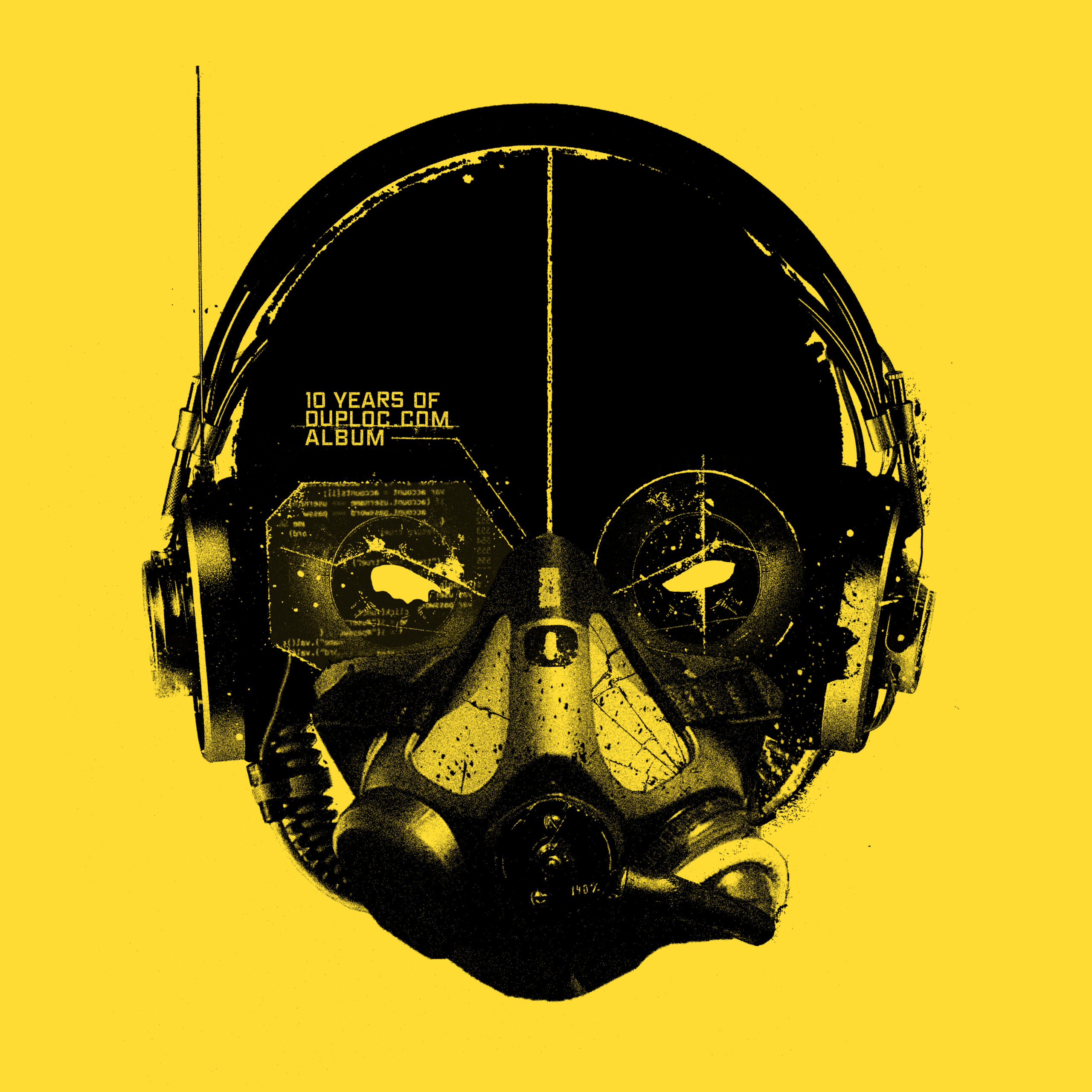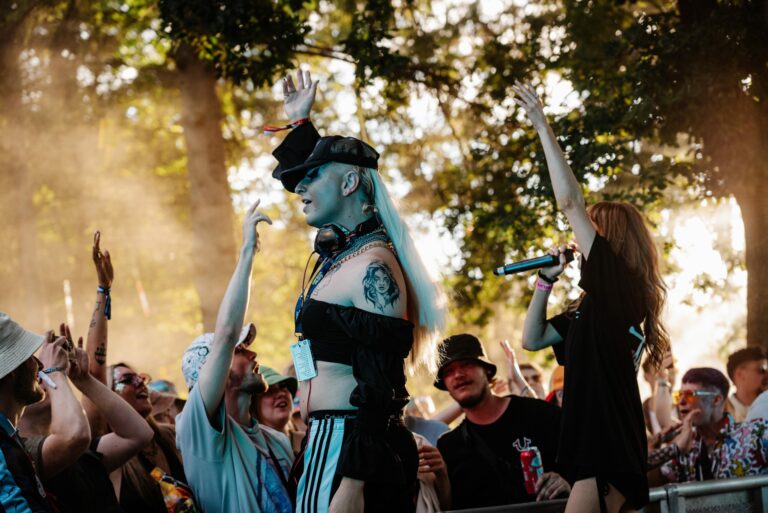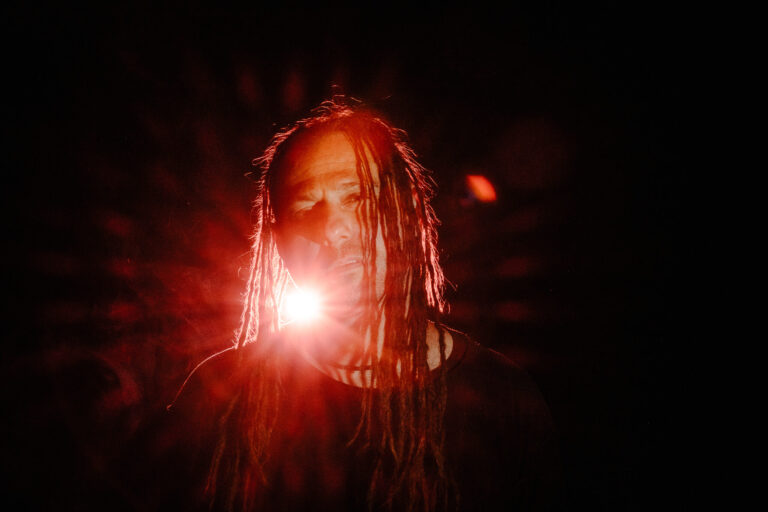When it first started in 2012, duploc.com was initially just a platform for Pieter Grauwels to promote and support the dubstep scene through premiers and reviews of music from other labels. Three years later he took the leap and tried his hand at releasing music made by friends through his own label, DUPLOC, and he’s never looked back since. Over the years he’s released music by dubstep heavyweights such as Distance and Ternion Sound, as well as fresher faces like Hamdi and Taiko.
To celebrate 10 years of the DUPLOC brand, the label has been releasing an EP every week, since October and includes fresh music as well as highlights from the labels discography. With the likes of ENiGMA Dubz, Hebbe and Mungk all contributing to the project.
To understand more about how he went from a fan to one of the hardest working people in the underground dubstep world, we caught up with Pieter to speak about all things DUPLOC.
How are things going?
Really good, I’m in the middle of the 10 years celebration right now. I’m feeling really fortunate so I can’t complain!
Why do you think you’re so fortunate?
Well, I’ve put so much into DUPLOC and after 10 years of work it now feels like it’s paying off! If I compare the time I’ve spent on the brands to how much money I have earned, it probably doesn’t balance out. But I love to do it and never want to take it for granted which is why I work on it everyday with no exception. I need to do it and have never taken a week off. If I did, it would feel like too much of a risk.
If you didn’t have that drive, you wouldn’t be here now.
Yeah, I was still in college when I started DUPLOC. There was no financial motivation and, looking back, some of the things I did might have been a bit silly or amateur. But I got the YouTube channel going and then launched the label which grew too. Now there’s money and other people involved. I’m just trying to be consistent and consistency is the reason that I’m here now. Sometimes there’s a lot of good music coming out and it’s easier for YouTube channels to pick it up. But when there are less releases, you might not be able to feature a track every few days. That’s when having new ideas is crucial, I think.
From a business perspective big companies aren’t thinking about the next month, they’re looking three or five years ahead. So I’ve adopted that attitude and I already have a release schedule with plans for all of 2023, 2024 and I’m already thinking about how I can celebrate 15 years of DUPLOC. Obviously some things get tweaked, but it’s important to have an idea of where you want to be. Most of what I do is looking at spreadsheets and planning things, on top of speaking with artists and listening to music.
If an artist comes to you and you’ve planned your releases for the next year, you have to be thinking about the year after if you want to work with them, right?
Definitely, especially with vinyl pressing times at the moment. It’s annoying when an artist comes to you with music, but you don’t have a spot open for two years. The artist makes the music and wants to release it straight away. This is why we’re starting a digital single series next year, specifically for this purpose. Just dropping a few singles in between the main releases. I’m looking forward to seeing how it works out.
However, there will always be the option for these digital-only tracks to be re-released on a compilation a few years later, which could be on vinyl. This is what I’m doing for the 10 year celebration EPs. This way the music can be out there fairly quickly on Spotify and the artist can be happy with that, people can buy it and interact with it, but there’s always the option of having that track drop on triple vinyl two years later.
That’s such an innovative way of getting the most out of the music you sign. Just going back a bit, most people know DUPLOC as a record label but that’s not how it started. How would you define what DUPLOC is now?
I struggle with identity for sure! It’s all me, which is one answer. It started out as a YouTube channel, duploc.com, which I see as a brand that uploads every dubstep label in the game. My label, DUPLOC, is just one of those labels which gets uploaded by my YouTube channel. I try to promote every relevant area of dubstep which is how everything grew. We also host the Dubstep Awards, which grew mainly due to the incredible support of the genre on the YouTube channel where we were already promoting all of the featured labels and artists. The awards are a great opportunity to celebrate music from the last year.
It’s all connected, but not quite the same.
We’re on a mission to represent how diverse dubstep can be and we’re trying to represent underground dubstep culture.
Is that why you set up the channel and website? To represent the dubstep community.
Yeah, the website is linked to the YouTube channel as it’s where I wrote reviews for EPs that were about to come out. I’d then link it to the Youtube channel, so it’s all connected.
What does DUPLOC actually mean?
It had no real meaning and was just a random word, but I realised something later which made it make more sense. Before I started the YouTube channel, I was just making my own dubstep playlists on YouTube using music from other YouTube channels. DUPLOC takes the “du” from dubstep, “pl” from playlist and “oc” from collection.
These playlists were how I started, I was getting 10,000 impressions for playlists that I was just making for myself. Listening to every dubstep channel and adding what I liked into monthly playlists caught people’s attention and made me realise that I could do more.
So people saw your playlists and that interest inspired you to start your own channel?
Yeah, I was really fortunate. We had a lot of subscribers and views within six months and people started to book me for gigs. A local festival, Rock Herk, booked me but I had never DJ’d before, so I had to ask a friend to teach me. Then I opened the festival, thinking that no one would be there for my set. But when I showed up, there were already like 50 people there and some of them were wearing my merch, only six months after starting the channel. This was all a few miles from where I lived at the time so it was all pretty crazy.
I think if you ask most artists what their first set was like, they probably wouldn’t be as interesting as that!
When I was about to leave the festival, I found out that another DJ dropped out and I was asked to play a last minute second set before the headliner. I ended up speaking to the photographer and we got along really well. 10 years later she’s now my girlfriend and about to be my wife!
I was so fortunate to get the booking and even more fortunate to be asked to play another set, which all led to me meeting my wife.
That is crazy. Definitely better than every first DJ set story I’ve heard! How did all of this lead to you setting up the label?
I don’t DJ at all anymore, but I used to quite a lot for the first two or three years. I was once booked to play in Switzerland and was sitting in a room full of producers who were showing everyone their tunes. Noclu, a German producer, was showing me his music and I thought it was great. Two tunes he played to me inspired me to set up the label, and they became the first release on DUPLOC.
It sounds like this was so natural too.
I’ve always lived in small towns and have never been in touch with sound system culture or underground music at all. I connected with dubstep in its peak, but was completely unaware of anything like that before then. My experience was so different to what I imagine people in the UK experience when getting into underground music. I didn’t know what I was doing, but I’ve learnt how to navigate the dubstep scene along the way. It’s been natural in a way but not very conventional.
When you listen to the early duploc.com uploads, some tunes were pretty heavy and not very sub bass focused. The sort of music younger people like to party to. But as I’ve matured, I’ve got into deeper sounds and started to understand other parts of the dubstep scene. So whilst I’ve matured, the sound of the label has too.
You’ve been running the label for seven years now. From your experience, what do you think the main responsibilities of a label are?
Most labels are generally EP-minded, which I completely understand. But the biggest problem with that, in my opinion, is that people have a short attention span and releases can be forgotten so easily. Rarely, a big DJ might pick a track up a few years later and the tune could get traction again, but most labels or artists don’t tend to push older music.
I feel like DUPLOC is an atypical label as a lot of our discography is re-released tunes, often through compilations. We’ll put previously released music onto a V/A with new artwork, then the music will reappear in all stores. It’s a way of making noise about a tune but more subtly. For the 140 ALLSTARS series, when Volume 4 drops next year we’re going to do a CD, USB and gatefold 4×12” vinyl. This is three years after the first volume dropped. It’s a new product and people can listen to it again, which is more than just a repost on Instagram or being featured in a mix. Most artists also expect a label to promote their release through posting content on socials, I think there’s more to it.
It must be great for the artist if they’re getting more appreciation for their work over a longer period.
I sign a tune and don’t tell people that they’ll get exposure over five years. The artist will get paid as normal and they’ll receive the full service from the label, with mastering, artwork and promotion. Then I have the option of promoting again further down the line.
I look in-depth at the data, and when we re-release music it peaks again. It’s also the reason I set up 140 Plates, and now have access to entire discographies of dubstep labels so I can highlight any release and also make charts. I can promote music from five years ago and I really like doing it.
You’re just trying to give more life to music which people might have forgotten about.
Exactly! Also, more generally as a label owner, just giving artists a chance is important to me. The basics like checking demos and replying to emails. For example, a guy called Hamdi commented on our first ever upload. Then over the next ten years he continued to send me music from time to time and earlier this year we released Skanka. That’s something I’m really proud of and it wouldn’t have happened if we didn’t pay attention to someone who first supported us a decade ago. That’s just one example but these things tend to happen a lot.
What a journey from fan to artist over 10 years. Have there been any big highlights for you since you started the channel and label?
Personally, our first upload on UKF was a big deal. Listening to the UKF uploads was such a big part of me getting into dubstep, and so the first upload was really humbling.
140 Plates taking off and getting the confidence from distributors to set it up was amazing, especially since no one has ever made a dubstep-specific store before. We worked on it for two years before we launched and seeing that work was very cool.
I also run the Dubstep Awards every year. In 2019, we had 40,000 unique voters which was incredible. That was a big year for the entire genre, and was also when the label saw a jump in sales. There was a lot of interest in the scene then.
But I don’t think too much about big milestones. So many things are happening every month, more regular things like a record selling out always makes my day.
To celebrate 10 years of duploc.com, you’re releasing an EP every week for 10 weeks. How did you decide which artists and what music you wanted to celebrate the 10 years with?
Some of the tunes are re-releases, 40 new tracks in 10 weeks would be too much. Some artists were very natural choices. ENiGMA Dubz was an obvious one because he was supporting us before we even had a YouTube channel. He’s featured a lot on the channel and label, so having him involved made sense. The same with Hebbe, he’s been doing almost all of our mastering and has appeared on the label a few times. I signed Ternion Sound when they had like 100 Soundcloud followers and now they’re touring everywhere. They’re doing great and so were a natural choice too.
With some of the other artists, just picking 10 was hard. However, these 10 represent the diverse sound of DUPLOC. The releases had to align with the artists schedules as well, because 10 EPs in 10 weeks is very strict.
Especially since it’s a vinyl release! I saw you’ve gone all out on the different vinyl editions for the 10 years release, how important is it as a format to you?
I’m not a vinyl collector myself but I know that artists and fans both value it a lot. Plus, it gives the music, artist and brand exposure and means it’s something which should be taken seriously.
So it’s almost about the status it has?
Yeah, there’s also a lot of digital music and vinyl is a big investment for labels. So listeners might think that if a label invests in vinyl, that it should be at least a bit good. Status sounds like a dirty word, but it does make sense. It’s about being taken seriously.
You’re not really messing around if you’re pressing vinyl these days. If you had to go back 10 years and give yourself advice before you set up the channel and label, what would you say to yourself?
Artwork [laughs]. I didn’t value it as much as I do now. If I’d start over, I’d spend a lot of money on an artist who knows the branding and what I need. Brand identity is an obsession of mine. You can’t change the music or the artwork.
You probably didn’t realise when you released that first EP that you’ll still be going seven years later.
We started with DUPLOC001 and went up to DUPLOC050. The music is all really good and the artwork all makes sense. But if you look at labels like DEEP MEDi or other pioneering imprints, their first release is considered iconic. I like my first release a lot but it isn’t as memorable as theirs. This is why there will be no DUPLOC051, we’re going to start over with DPLC001 early next year. There will be new artwork and now I’m more experienced I’ll be even more mindful of what I’m signing.
I feel like I’ve learnt a lot and stepped up over the years, so I’m looking forward to a new approach with new visuals and more detail to everything.
So what’s the plan for the next 10 years?
The most important things are to build out the label and be consistent with the channel. It felt like 2018/ 2019 was a peak for dubstep and at the moment there aren’t as many new producers coming through, so I’m going to be consistent and if it peaks again I’m at the forefront. If it doesn’t peak again, we’re still going to be here. Continuing to find new artists, reach more people and keep them entertained. I don’t see myself stopping in the next 10 years. I run everything alone and DUPLOC feels like my baby.
Just one last question, imagine you’re about to come home after being out all day. When you get home, you realise there’s a fire and you only have time to save one possession. What would it be?
I’m really not materialistic, everything is online for the label and so would be safe. The only thing I can think of is a box where I have one issue of every DUPLOC record and a bunch of them are sold out. It also has some memories from gigs I’ve played at. Everything can be replaced, but that’s probably what I’d take.
Any shoutouts?
Every label and artist who has trusted me with their music, for the channel and for the label. Some labels I was working with were bigger than me, so I appreciate their trust. Some labels just liked what I did, even if it wasn’t much exposure for them initially. That’s how the channel naturally grew and I was very grateful, without those labels I wouldn’t be here today.
Also, every artist who trusted me with their tunes, their personal material. It might seem normal for them to give me their art, but I really appreciate it and will always do my absolute best for everyone.
Follow DUPLOC: Youtube/Soundcloud/Facebook


